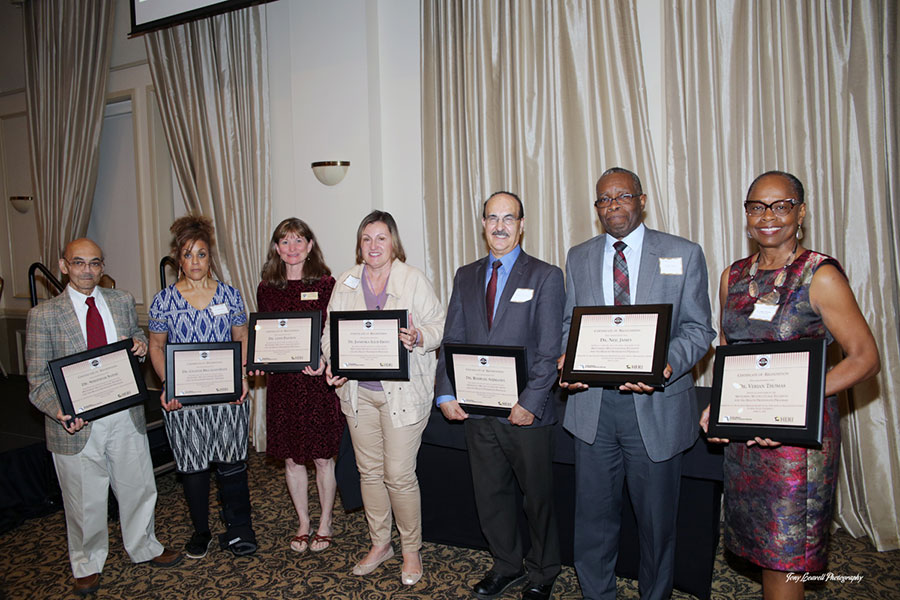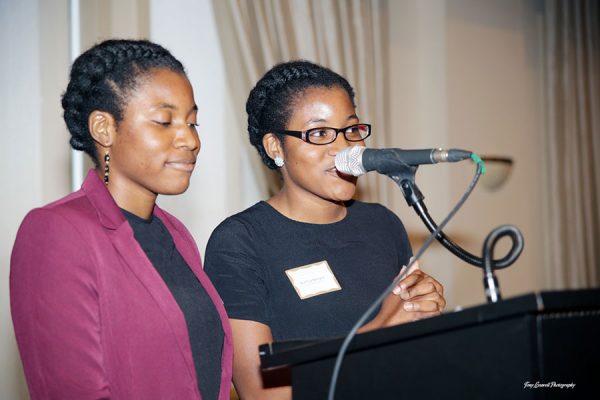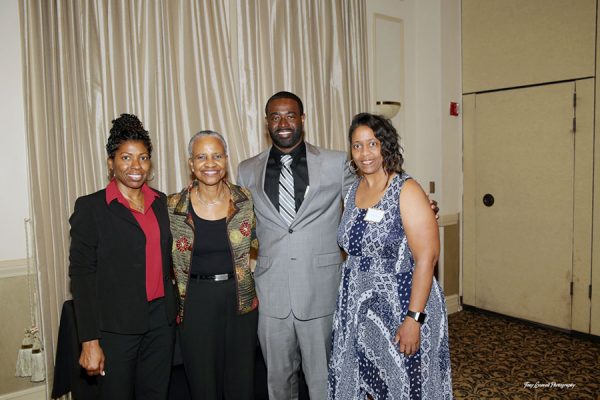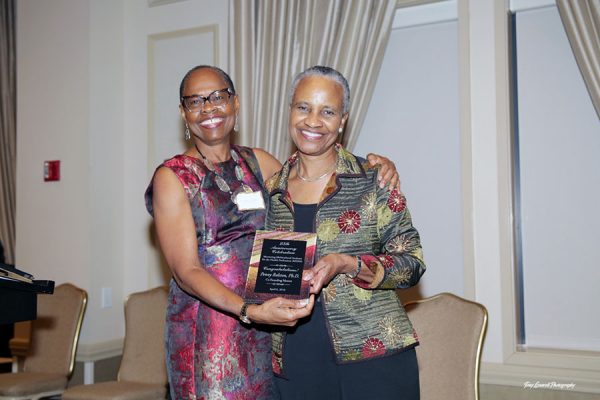
For 25 years, a partnership between Florida State and Florida A&M Universities has helped a host of undergraduate students move on to a variety of health-related careers.
Since 1993, the Mentoring Multicultural Students for Health Professions (MEMS) program has supported undergraduate students of diverse backgrounds seeking to enter the health workforce.
The program was established by Penny Ralston, dean emeritus of the FSU College of Human Sciences and currently director of the Center on Better Health and Life for Underserved Populations. She partnered with Verian Thomas of FAMU, professor of food science, who was associate dean of Academic Affairs at the time. The two administrators garnered a grant from the United States Department of Agriculture to establish the program.
“From that point, MEMS was launched,” Ralston said. “It was a three-year grant, but we kept going, and as a result we’ve had 25 years of mentoring a small group of students each semester.”
MEMS focuses on three pillars: professional development, social support and recognition. Professional development involves individual mentoring and a seminar to help students with career decision-making. The program also helps students make contacts with current health professionals and further develop their research and writing skills.
Social support is provided by faculty affiliated with MEMS, program alumni, health professionals in the community and other MEMS students. Recognition activities include an annual research reception and banquet that the students plan and implement.
At the 25th annual celebration, students honored the long-time mentors of MEMS, including FSU faculty Bahram Arjmandi, Jodee Dorsey, Jasminka Ilich-Ernst, Cathy Levenson, Lynn Panton and Shridhar Sathe; FAMU faculty Neil James, co-founder Thomas and Iris Young-Clark; and Celeste Brickler-Hart, a local physician.
Over the past 25 years, more than 150 students have been mentored in MEMS. More than 96 percent have graduated with a bachelor’s degree, 38 percent placed in health professional schools and 23 percent completed graduate degrees.
Clarens Jarbath, who received his bachelors in biological sciences and is currently completing the masters of public health from FSU, is an alumnus of the program.
“The program helps expose minorities to opportunities they might have not known existed,” Jarbath said. “It proved to be valuable to me because my parents were immigrants and didn’t have much knowledge of the inner workings of the American healthcare system. MEMS helps bridge that gap and offers opportunities for those willing to do the work, but need the guidance.”
Through the program students also are given role models they can look to for inspiration.
Alma Littles, senior associate dean at the FSU College of Medicine, is one of those role models. Littles, who came from a very poor family of farmworkers in Gadsden County, said her participation in the program focuses on student motivation and success.
“We need role models of all kinds, and it does help when students particularly from disadvantaged backgrounds are able to see and be mentored by someone that looks like them,” Littles said. “It gives them that feeling that they too can succeed. It’s really important to see that.”
Crystal Powell, a current MEMS student, also hails from Gadsden County and is a third-year psychology student.
“Representation is key to a lot of things,” Powell said. “Seeing someone who’s where I want to be says to me that I can do it, too. If they can get through the challenges and adversities, so can I. It also means that no matter what comes our way or setbacks we face as minorities, we can move past those barriers.”
One alumnus of the MEMS program is proof that barriers can be overcome and that careers can soar. Deirdra Chester, one of the first students in the invital MEMS cohort, is now the National Program Leader for Applied Nutrition Research in the Division of Nutrition at the U.S. Department of Agriculture. In this position, she provides leadership in identifying emerging issues of national importance in the areas of nutrition, functional components of food and childhood obesity.
“This program gave me a great start and it is the main reason that I am where I am today,” Chester said.
Another alumnus, Joseph Negusei, graduated from FSU in 2009. He completed his doctorate of medicine at Cornell University and is currently a cardiology fellow at University of California, Los Angeles.
“I wouldn’t have been able reach my goals in medicine without MEMS,” Negusei said. “It provided the necessary foundation to pursue medicine and served as a launching point for my career.”
For more information on the MEMS program, contact Penny Ralston at pralston@fsu.edu or (850) 645-8110.







